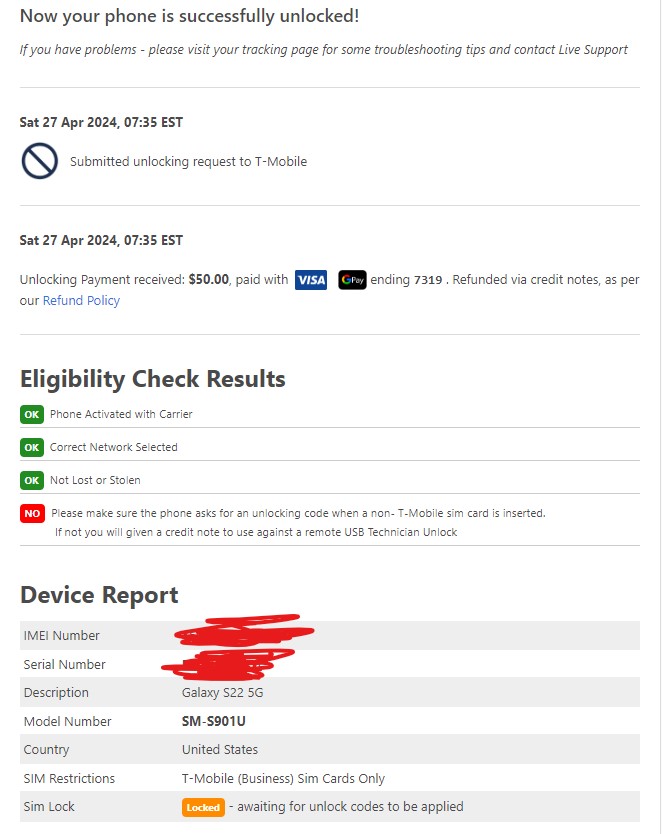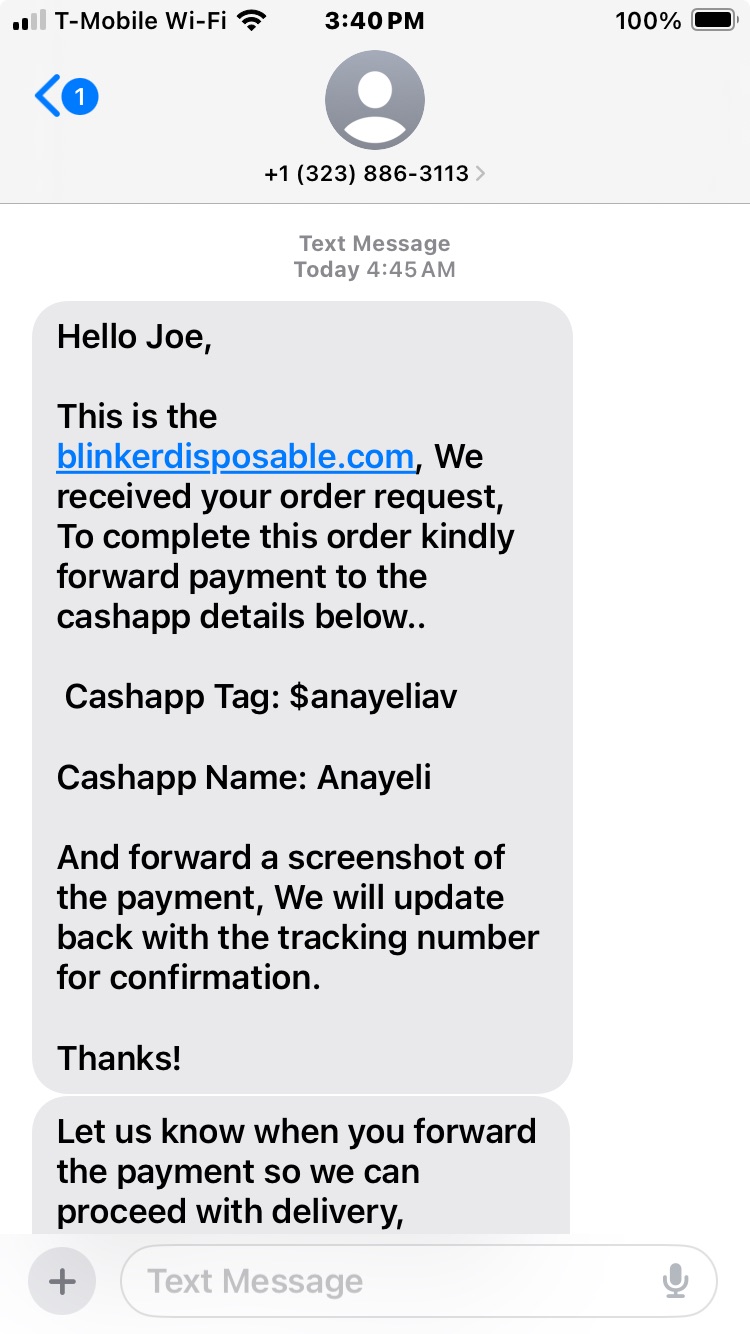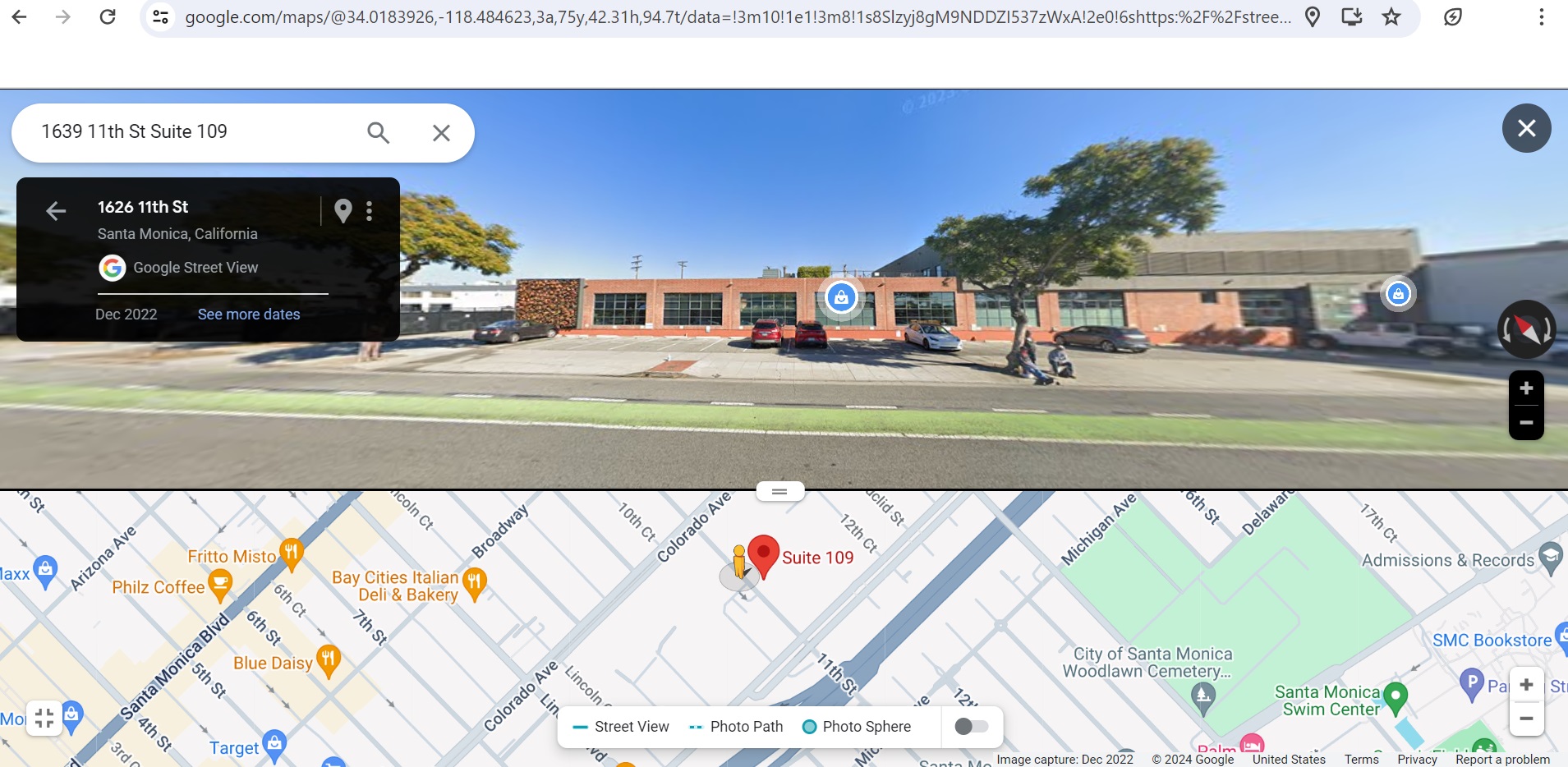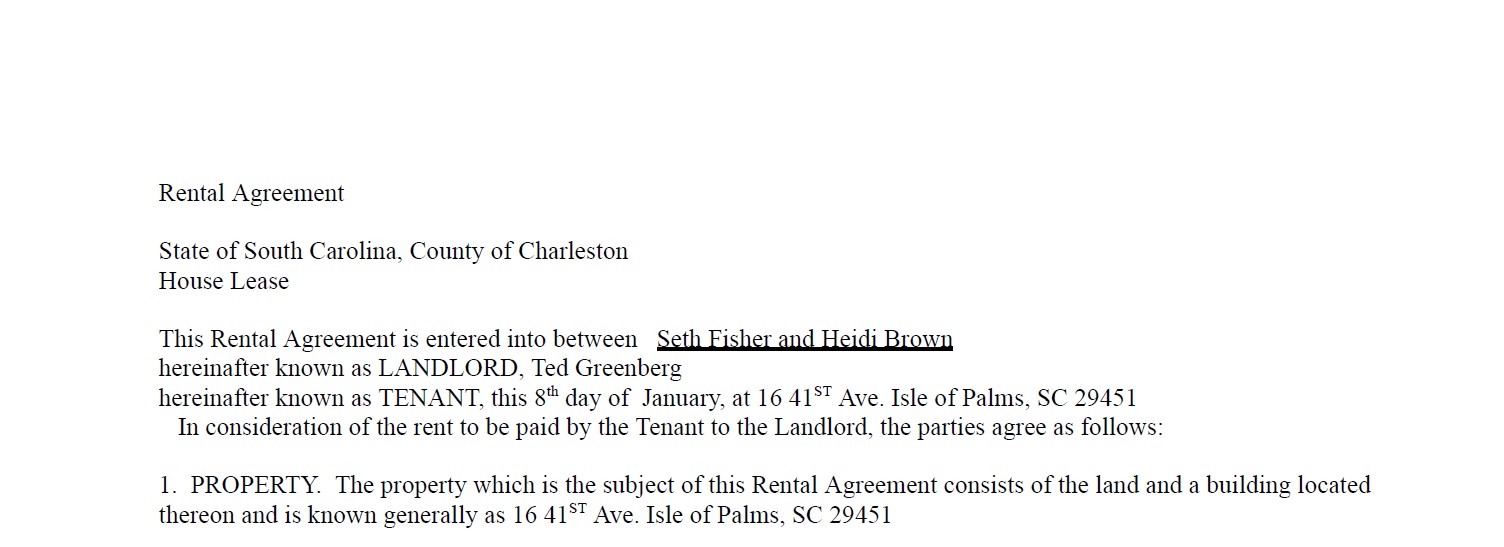- Report: #137001
Complaint Review: Lawrence L. Piersol Chief United States District Judge - Sioux Falls South Dakota
Lawrence "Larry" Piersol, Chief United States District Judge Complaint of Judicial Misconduct - Lawrence Piersol gross impropriety, election 2004 Sioux Falls South Dakota
Opening Statement
Cannon 2 of the Code of Conduct (Appendix A-2) requires a judge to avoid impropriety and the appearance of impropriety in all activities. Further, in 2A, A judge should respect and comply with the law and should act at all times in a manner that promotes public confidence in the integrity and impartiality of the judiciary. Judge Piersol, a former Democrat State Legislator, violated both of these requirements by not recusing himself from an obvious political ploy brought by his long time Democrat friend, (former) Senator Tom Daschle, who sued a political opponent on election eve. Canon 2B says, A judge should not allow ... other relationships to influence judicial conduct or judgement. The Commentary on 2B specifies a judge should nut use the judge's judicial position to gave advantage in litigation involving a friend... (Appendix A-3)
That Judge Larry Piersol is a long time friend and confidant of former Senator Daschle is substantiated by former Senator Daschle's own words. (Exhibit 1) At a speech given by the former Senator on July 20, 2003 before the National Convention of the Association of Trial Lawyers of America, the former Senator said,
I've always felt a special gratitude to ATLA and the attorneys it represents. First, I got my start in politics thanks to lawyers... rather, one lawyer in particular. In 1978, I won my first election to the House by 14 votes. Don't laugh, in South Dakota, that's 60 percent of the vote. Apparently undaunted by that landslide of support, my opponent sued to contest the election. I was fortunate to be represented by a great lawyer and a dear friend, Larry Piersol.
(See also Exhibit 2-3)
Even a politically friendly newspaper raised the specter of impropriety when it reported Judge Piersol had sat on a case involving - and ruled in favor of - the man who nominated him to the federal bench. (Exhibit 3) On its face, one cannot be nominated to the federal bench by a dear friend, sit on that dear friend's suit and not give the appearance of impropriety, if not perpetrate impropriety itself.
Further, by not recusing himself, Judge Piersol violated Canon 3, C (1)(a), which plainly states,
A judge shall disqualify himself or herself in a proceeding in which the judge's impartiality might reasonably be questioned, including but not limited to instances in which:
(a) the judge has a personal bias or prejudice concerning a party, or personal knowledge of disputed evidentiary facts concerning the proceeding;
(See Appendix A-4) This is also a violation of 28 U.S.C. 455 (a) and (b)(1) which further codifies the Code of Conduct (see Appendix B),
(a) Any justice, judge, or magistrate judge of the United States shall disqualify himself in any proceeding in which his impartiality might reasonably be questioned.
(b) He shall also disqualify himself in the following circumstances:
(1) Where he has a personal bias or prejudice concerning a party...
It's inconceivable that Judge Piersol does not have a personal bias or prejudice toward his long time friend of the same political party. It's also inconceivable his impartially might not be reasonably be questioned.
Some attorneys on various blogs think Judge Piersol may have also violated 455 (b)(2)
(2) Where in private practice he served as lawyer in the matter in controversy
since the Judge, twenty years before, served as a lawyer in private practice in a similar matter of controversy to save his friend's election. (Exhibit 1 & 4-2) One wonders, had there not been live reporting from the courtroom and the corresponding public scrutiny, how far the Judge would have gone. (Exhibit 5) The story even made The Drudge Report that night, as reported to the judge by his clerk. (Implied from Exhibit 5. Sorry, no direct Exhibit. Saved a screen shot the night of the elections, but something went wrong in my computer.)
Background & Discussion
I've provided the first page of the suit in question (Exhibit 6). Civ. 04-4177. Some attorneys have implied the suit should have been summarily dismissed for defect, since Mr. Thune, an individual named in the suit, is never mentioned in the Complaint. (Exhibit 7) They've said this is an absurd suit and the implication is that Judge Piersol overlooked this obvious defect when he denied a motion to dismiss.
Judge Piersol's willingness to help his friend from the Bench is not an isolated incident - although that would not minimize the violation of law if it were. A cursory Google search reveals that Judge Piersol was contacted as early as November 2002 when a Democrat lawyer primed the pump, writing to Judge Piersol regarding a future injunction if needed. (Exhibit 8-2) While perhaps a judge can be forgiven for erring under the press of time at a midnight hearing (?), two years notice is plenty of time to reject such a compromising offer. There is a de facto appearance of impropriety here, if not impropriety itself, since Judge Piersol was a former Democratic State legislator, now sitting on a case involving the ranking Democrat member of the U.S. Senate in a very contentious battle for control of Congress.
Worse, a week before the South Dakota election, Judge Piersol appeared on the Number 1 rated overnight radio talk show Coast to Coast AM (nee Art Bell), where he talked in glowing terms of his friend, Tom Daschle. (Limited excerpts in Exhibits 9-1, 10-1. He may have said made more incriminating statements... I don't have access to the full transcript.) Thus, he knowingly violated the spirit of the law, if not the letter, by publicly endorsing a de facto candidate for public office by violating the Code of Conduct, Canon 7, A (2) which says (Appendix A-5)
A. A judge should not:
(2) make speeches for a political organization or candidate or publicly endorse or oppose a candidate for public office;
It's not necessary to show a pattern and practice of gross impropriety in a Complaint of Judicial Misconduct, any more than it's necessary to accept more than one bribe to be charged with bribery. But lest anyone think this is an isolated incident - an innocent indiscretion - it is not. This layman is not the only one to notice. Many lawyers, some quite prominent, have cried fowl. (Exhibits 4; 7; 8-1,2; 9-1,2 and 10-1,2) There is a pattern and practice of abuse here by Judge Piersol, which must be dealt with. Otherwise, there is nothing to restrain him from continuing down the path he has chosen and doing this again. The fact that live reports were broadcast that night from the courtroom, even making The Drudge Report, Judge Piersol's actions have seriously damaged the integrity of the Judiciary and the public's confidence therein. There is only one recourse that will demonstrate to the public the judiciary is serious about its honor and integrity.
Remedy
Per 28 U.S.C. 351, as echoed in your Rule 14(f)(4), I ask for a public reprimand of Judge Piersol. This is the Biblical mandate for rebuking elders in the church.
Those [elders] who sin are to be rebuked publicly, so that the others may take warning.
I charge you, in the sight of God and Christ Jesus and the elect angels, to keep these instructions without partiality, and to do nothing out of favoritism. 1 Timothy 5:20
While it seems no one can be shamed anymore, this is the only remedy the law allows, short of impeachment. Judge Piersol has sinned against the country and needs to be rebuked publicly.
Timeliness
There is no limitation on time for filing this Complaint. I point out that The Code of Conduct requires a judge to initiate appropriate action when the judge becomes aware of reliable evidence indicating the likelihood of unprofessional conduct by a judge or lawyer. (Canon 3B(3).) Judge Piersol's transgression, being especially arrogant and especially brazen, was widely reported in the media, both print and Internet. Having waiting a respectful time for the 8th Circuit to act and not hearing of any corrective action reported in the media, it falls to this concerned citizen to seek a remedy as instructed by the D.C. Court of Appeals - an internal disciplinary proceeding, begun with the filing of a complaint. (United States v. Microsoft Corp., 253 F.3d 34, 113 (D.C. Cir. 2001))
The Saint
Glendale, Arizona
U.S.A.
4 Updates & Rebuttals
anon
sioux falls,United States
I couldn't agree more!!
#2Consumer Comment
Thu, June 22, 2023
Judge Piersol is a big pile of dog s**t who does not care about pro se litigants. He only cares about his buddies who come before him to kiss his feet in order to get a piece of the pie the atty's will get out of a case. I filed a case and it was sent to him. I had tons of evidence against the defendents (bankers) who placed into evidence fraudulent documents then cited the 12(b)(6) rule. So now I face a fraudulent foreclosure of my house. Oh this isn't over by a long shot. come hell or high water they are gonna have a fight on there hands. Go lwatch this vid he publically made of himself where he admits to his misconduct. this POS will have judgment day one day and I hope my god isn't so kind to him.
https://kentuckyoralhistory.org/ark:/16417/xt71708s38r20
Ken
Randolph,Massachusetts,
U.S.A.
This was an interesting post until...
#3Consumer Comment
Tue, November 08, 2005
I was totally impressed with the thoughtfulness and detail of the post until all of a sudden it got real wacky with the part about 'rebuking elders in the church'. What ever happened to separation of church and state? What happens if he doesn't attend your church? And more importantly, who cares if he gets rebuked by th elders of the church? Wouldn't the old standby "twenty lashes with a wet noodle' be just as effective? If you ended your original complaint of misconduct in that manner, I can see why it got dismissed. That's too bad, because it looked like it had some substance.
Thom
Glendale,Arizona,
U.S.A.
Biased Judges Protecting Their Own
#4Author of original report
Tue, November 08, 2005
It's over. Without comment, the judges on the 8th Circuit circled the wagon, ignored the law, and rallied around two of their own. (Judge Piersol and their chief judge, Judge Loken.) So we conclude it's okay in the 8th Circuit for a judge to try to fix an election for a friend and to use your judgeship to endorse him for election. The Code of Conduct for federal judges and the law means nothing to these judges. So why should you trust anything else they rule on? There are no honest judges here. Contrast with Judge Kozinski, who wrote an excellent 39 page dissent when the 9th Circuit similarly tried to sweep a complaint against Judge Real under the rug. (Judge Real used his power to commit Grand Larceny, a felony. Yet, he's still a judge.) Do a Google search for more info. As of this writing, the 8th, 9th and 10th Circuits have shown disdain for the law, as documented on the RipOff Report. Thanks to any ROR readers who took the time to contact any of the judges in the 8th Circuit court of appeals. The only real remedy for bad judges is impeachment. Let your Congressmen know about these reports! ---------------------------------------- JUDICIAL COUNCIL OF THE EIGHTH CIRCUIT JCP NO. 05-007 IN RE: PETITION OF JOHN DOE* ORDER A petition for review by the Judicial Council has been filed in this matter. Pursuant to Rule 8(b) of the Rules for Processing Complaints Against Judges and Magistrates of the Eighth Circuit, the petition has been referred to the Council's Review Panel. The Review Panel consists of United States Circuit Judge Michael J. Melloy, United States Circuit Judge Raymond Gruender, United States District Judge Catherine D. Perry, United States District Judge Laurie Smith Camp, and United States District Judge James E. Gritzner. The Review Panel votes to deny the petition for review for the reasons stated in Chief Judge James B. Loken's order of dismissal. IT IS SO ORDERED. DATED: November 1, 2005 ATTEST: MICHAEL E. GANS BY DIRECTION OF THE EIGHTH CIRCUIT JUDICIAL COUNCIL *pursuant to Rule 4(0(1) of the Rules for Processing Complaints Against Judges and Magistrates of the Eighth Circuit, the names of the complainant and the judicial officer whose conduct was complained of are to remain confidential.
Thom
Glendale,Arizona,
U.S.A.
Appeal of dismissal
#5Author of original report
Tue, October 04, 2005
As expected, the chief judge of the 8th circuit court of appeals dismissed the complaint of judicial misconduct against Judge Piersol. Instead of posting that dismissal, which is kind of boring and full of legal sophistry, here is the appeal to that decision, which is a little less boring and contains no sophistry. You'll be able to figure out what the order said from context clues in the appeal. Any ROR readers who care about justice should write one judge at the 8th circuit (except the chief judge) and encourage them to stand up for what's right and discipline Judge Piersol. The judicial council, which will hear this appeal, is comprised of a number of judges from the 8th COA. For a list of judges to write, go to http://www.ca8.uscourts.gov/newcoa/coaFrame.html and click on "Eight Circuit judges" It will take the council a few months to decide if they're going to do the right thing. Check back here occasionally to see what happened. ++++++++++++++++++++++++++ Like Diogenes, I search for an honest man. Sadly, the search continues. I petition the judicial council for review of Chief Judge Loken's order dismissing a complaint of judicial misconduct against Judge Piersol, file JCP No. 05-007. I make this petition based on: 1) Procedural error. Chief Judge Loken's Order to dismiss is in violation of law, being untimely. Therefore, it should be summarily dismissed for lack of timeliness. 2) Lack of merit. Sadly, Chief Judge Loken's order is largely without merit and largely off-point. His order cites un-authoritative sources, apparently mocks the complaint process, obfuscates the facts, and makes a few fallacious arguments. One wonders if words mean anything, what the meaning of is is, or if one is even bound by his oath of office? Procedural Error - Timeliness The law, 28 U.S.C. 352, Review of Complaint by Chief Judge, says, (a) EXPEDITIOUS REVIEW; LIMITED INQUIRY.The chief judge shall expeditiously review any complaint received under section 351(a) or identified under section 351(b). It took five months for this order to come down. This does not constitute an expeditious review, and therefore, the deadline for the order has long passed. Chief Judge Loken (CJL) broke the law by not keeping it. As the only remedy available to me, I ask the council to ignore the dismissal on procedural grounds and automatically sustain my complaint, moving on to the next step. No doubt you will point out there is no definition of expeditious in the law. True. But we have a few markers to guide us. First, the basic unit of time in legal proceedings / notices is typically 30 days. For example, I have 30 days (actually, less) in which to file this petition. Fortunately, the 1st Circuit substantiates that 30 days is a reasonable unit of time. In their Commentary on Rule 4, Expeditious Review, It should be a rare case in which more than sixty days [i.e., twice 30] are permitted to elapse from the filing of the complaint to the chief judge's action on it. (Emphasis mine.) Despite this, it has taken twice sixty days and then some for CJL to act on this complaint. (Action defined in your Rule 4(f) as giving notice. Either (1) an order to dismiss will be provided to the complainant or (2) if a special committee is appointed, the chief judge will notify the complainant.) It has taken 150+ days for CJL to finally act by providing an order. While I'm told ignorance of the law is no excuse, after 90 days passed without action, I mailed CJL a letter reminding him of the law, asking for an expedited response. (Letter dated July 4, 2005; cc:'d Judge Kornmann and Circuit Exec Pam Agathen) It took another sixty days after mailing that notice for him to act. Now, inscribed on the Supreme Court building are the words Equal Justice under the law. This is the affirmative way of stating a Biblical command God gave judges: Do not pervert justice; do not show partiality to the poor or favoritism to the great, but judge your neighbor fairly (Leviticus 19:15) If I miss the 30 day deadline to file this petition, my petition is DOA. It is deemed untimely and summarily dismissed. I ask for equal justice under the law. If you would ignore my petition for being late, then you should likewise ignore the order for being late. If you won't stipulate that an order received this late violates the law, then I ask: at what point would you deem an order untimely, in violation of the law? Six months? One year? Two years? Clearly, if you have no definite time, if you would never deem a late order not expeditious, then you have nullified the law Congress passed and are not keeping the law. Lack of Merit Really, this is a simple matter. CJL stipulates that Judge Piersol is a longtime personal friend and political ally of one of the litigants. (Not to mention his wife's involvement in same.) This is a black letter violation of law. There is no reason for the unholy mixing of case law with common sense. This case is being tried, and has already been tried, in the court of public opinion. I suspect even Judge Piersol knows how repugnant the public views his act. (From realtime blogging from the courtroom, The judge raises the issue of live reports coming from the courtroom and ending up on some website.) Much like your teenager smashing the window of your neighbor's car, the damage has been done. The best the council can do at this point is damage control by reprimanding the offending miscreant. In the best case, the council will acknowledge his wrongdoing and show its displeasure by punishing the lawbreaker, holding him accountable. In the worst case, the council will choose to continue to cover up the matter. For the sake of brevity, I'll not dwell on every error, for they are legion. Rebutting in the order presented: CJL begins by questioning - even mocking? - the complaint process. By selectively quoting various opinions of Congressmen, he questions whether a good citizen can make a legitimate complaint of judicial misconduct against a judge, short of bribery or some other impeachable behavior. (Of course, a complaint about impeachable behavior would be moot.) This shows either total disdain for the system or ignorance of it, neither which is befitting a chief judge. Ostensibly seeking guidance, CJL chooses to quote the 1980 Senate Judiciary Committee, where the Misconduct Act was first born. But opinions of Senators are not legally binding and carry no weight. Even if they did, quoting from 1980 conveniently overlooks 25 years of history, changes to the Act along the way, and the precedents accrued thus far. Therefore, I much prefer quoting a recent decision by the DC court of appeals that is on point with respect to judicial misconduct - the famous Microsoft Antitrust case featuring the infamous Judge Thomas Penfield Jackson (retired). (United States v. Microsoft Corp., 253 F.3d 34, 113, D.C. Cir. 2001) I also prefer to quote from the Federal Judicial Center's Recusal: Analysis of Case Law under 28 U.S.C. 455 & 144 (2002). As if the laws weren't clear enough, it gives even clearer guidance to judicial branch employees. Quoting opinions from Senators is not only pointless, but harmful, since their opinions are contrary to the law. For example, the Committee opined that the chief judge or judicial council ... is not bound by' the Code of Conduct. But the DC COA stated The Code of Conduct is the law with respect to the ethical obligations of federal judges... and used it as law to remove Judge Jackson. (Exhibit A - 6) Therefore, the council must also treat it as law. CJL's carefully culled opinions from the Senate Committee that minimize the intent of the Act are to be rejected. In Microsoft, the court remanded the trial to a different judge because Judge Jackson gave rise to an appearance of partiality. It said ...we hold that the actions of the trial judge seriously tainted the proceedings before the District Court and called into question the integrity of the judicial process. In its decision, the court used the Code of Conduct as black letter law, a binding requirement on federal judges, citing violation as de facto judicial misconduct. The court also touched on the complaint procedure in its tutorial on Judicial Misconduct. (Exhibit A) The Code of Conduct contains no enforcement mechanism. The Canons, including the one that requires a judge to disqualify himself in certain circumstances, see Code of Conduct Canon 3C, are self-enforcing. There are, however, remedies extrinsic to the Code. One is an internal disciplinary proceeding, begun with the filing of a complaint with the clerk of the court of appeals pursuant to 28 U.S.C. Section [351]. (Exhibit A - 7) Thus, the court condones the disciplinary proceeding, cites violation of the Code as a trigger, and puts the onus on good citizens (and good chief judges, since they can initiate complaints on their own) to seek remedy after the fact by filing complaints extrinsically. By filing this complaint, I'm simply fulfilling my duty as a good American and complying with the court's instructions. While I'm a fan of original intent, one has to get the facts right. The fact is ... section 351 [nee 372] was passed in response to the problem posed by an Article III judge who was thought unfit to serve but could not be removed because he had not committed an impeachable offense. (Judge Kozinski, United States v. Washington, 98 F.3d 1159, 9th Cir. 10/23/1996) Since Congress has not seen fit to impeach Judge Piersol, my complaint in this matter is the quintessential use of the complaint process. It should not be rejected out of hand. Even though Judge Piersol violated black letter law {Code of Conduct and 28 U.S.C. 455(a), (b)(1) and I now add (b)(4)} CJL trivializes Judge Piersol's transgression, suggesting the Act, with its singular reference to conduct prejudicial to the effective administration of the business of courts is too vague to know that sitting on the trial of your longtime personal friend and political ally is wrong. (Later he implies that anyone who might reasonably question Judge Piersol's impartiality is partisan.) But the Preamble to the Code of Conduct says, The Code is not intended as an exhaustive guide for the conduct of judges. Nor can it be. As an attorney on the New York State Commission on Judicial Conduct wrote, Tyrants come in more varieties than Baskin-Robbins has flavors. Misconduct is like pornography: you know it when you see it. Recusal says Any circumstance in which a judge's impartiality might reasonably be questioned, whether or not touched on in Section 455(b) requires recusal under Section 455(a). Further, [t]he First, Fifth, Sixth and Eleventh Circuits have said that close questions should be decided in favor of recusal. Also, [w]hen the judge is the actual trier of fact, the need to preserve the appearance of impartiality is especially pronounced. (Exhibits B - 6, - 9, -11 respectively.) Note that the ABA's new proposed model of the Code of Conduct attempts to minimize weaseling, stating in its new Preamble, The black letter Rules of the Code of Conduct provide a body of clear, succinct and enforceable rules to regulate the conduct of individual judges. ... They establish minimum standards of conduct with which all judges must comply. (ABA Joint Commission, June 30, 2005, Draft of Model Code.) Then there's the fallacious argument that since the Committee prognosticated that only in rare cases will it be deemed necessary to invoke the Act, the Act should be invoked only rarely. Apart from the fact that the Committee cannot foresee how much discipline might be required in the future (any more than parent can know how many spankings a child will require as they grow up), that's like saying since a Legislature thought the death penalty would be only rarely needed, we will refrain from executing most murderers. It's like the 10th circuit saying, because mandamus is an extraordinary remedy, we will not issue a writ, even when warranted. [The bizarre case from Utah seeking full disclosure from a judge asked to recuse. Plaintiff knew, as do most Utahans, about the secret oath of allegiance the judge had sworn to his church, a party at trial. In re McCarthey, 368 F.3d 1266 (10th Cir. 05/26/2004)] This makes no sense and is illogical. I'm saddened CJL disparages the judiciary, calling to mind the unwholesome image of judges getting drunk at a whorehouse. However, in a jurisdiction where prostitution is legal, there's nothing in the misconduct laws to dissuade a judge from getting drunk in a whorehouse. But it's a ridiculous example. Even where prostitution is illegal, is CJL implying my complaint would stand a better chance if Judge Piersol was caught drunk with a prostitute instead of fixing an election for his friend? The council should reject all citations from the courts that dilute Congress' will, stating that the misconduct law was directed at serious judicial transgressions. Such citations violate the separation of powers. This would be like Bill Clinton writing an Executive Order telling Congress what constitutes an impeachable offense. As to what triggers misconduct, I prefer to quote Justice Scalia, who authored Liteky v. United States in 1994 (which, ironically, CJL quotes later). Justice Scalia, reviewing the meaning of 28 U.S.C. 455 said, what matters is not the reality of bias or prejudice but its appearance. Quite simply and quite universally, recusal [i]s required whenever impartiality might reasonably be questioned.' Moreover, subsection (a) covers all aspects of partiality. Again, all CJL's citations that undermine Congress' oversight and dilute the law must be rejected. Rather, I quote Justice Kennedy, who, concurring in Liteky said, [T]he central inquiry under 455(a) is the appearance of partiality, not its place of origin; Disqualification is required if an objective observer would entertain reasonable questions about the judge's impartiality. ... Indeed, in such circumstances, I should think that any judge who understands the judicial office and oath would be the first to insist that another judge hear the case; and Section 455(a) addresses the appearance of partiality, guaranteeing not only that a partisan judge will not sit, but also that no reasonable person will have that suspicion. CJL later will claim the council cannot discipline Judge Piersol for making a discretionary recusal decision. There's nothing discretionary about it. If their written words aren't enough, perhaps the council will ask Justice Scalia or Kennedy whether a judge must recuse from a case involving a longtime personal friend and political ally? CJL says it is well-settled that the complaint procedure may not be used to have a judge disqualified from sitting on a particular case'. Rule 1(e): While he correctly notes this was not germane in my complaint (then why mention it?), his statement is wrong. So that future chief judges do not promulgate this error, I'm compelled to digress to address this before the council. This misunderstanding of the law is frequently used to wrongly dismiss complaints. The 3rd Circuit has it right in their parallel version of their Rule {also 1(e)}: The complaint procedures may not ordinarily be used to have a judge disqualified or recused from a case. The implication - not only logical, but necessary - is that, in some circumstances, sometimes it can. And rightly so. Take for example the simplest case not involving the nebulous, subjective, moral issue of misconduct but rather the objective, amoral issue of disability. Judge Kozinski observed that Disability, mental or physical, is not one of the grounds enumerated in 144, 455 or any other statute; it is, therefore, not a proper basis for seeking a judge's recusal. The only recourse when a judge is believed to be disabled is to complain to the circuit judicial council. (Above) Therefore, if one of the parties at trial noticed symptoms of Alzheimer's in their judge, their only recourse is to file a complaint of disability. If the council investigates, calls other doctors who confirm the diagnosis, that judge is disqualified from sitting on that case. So then, the complaint procedure CAN be used to have a judge disqualified from sitting on a particular case. The same should hold if I, as a neurologist, while watching CourtTV (i.e., a non-litigant) notice signs of Alzheimer's in a judge and similarly file a complaint. (Since any person can file a complaint.) If my diagnosis is confirmed, the judge is disqualified. Again, the complaint procedure can be used to disqualify a judge, contrary to CJL's assertion that it cannot. In the case of disability, this is quite proper and to be expected, especially as judges live longer. Now, let's expand this to the issue at hand - misconduct, using Judge Jackson in the Microsoft case. The court found Judge Jackson's violations were deliberate, repeated, egregious, and flagrant. The court disqualified Judge Jackson saying we vacate the Final Judgment on remedies, because the trial judge engaged in impermissible ex parte contacts ... giving rise to an appearance of partiality. Now, instead of Microsoft, a litigant at trial, claiming impropriety in court on appeal, suppose I, a non-litigant, had made the exact same case to the chief judge in the form of a complaint. Should the outcome be any different? No! Impropriety is impropriety, no matter who brings the charge. Judge Jackson needed to be disqualified from sitting on the case because he appeared biased. It ought not matter if a party at trial raises the issue of impropriety or whether a good citizen raises it. So again, a complaint can sometimes be used to disqualify a judge. Along this line, CJL keeps raising the strawman argument that since none of the parties moved for recusal, there must not be appearance of impropriety here because they didn't see it. Or, if they did see it, since they didn't care, why should I? Or that because they didn't, that somehow minimizes my right or merit to file a valid complaint. As above, from the Microsoft example, none of that diminishes the merits of my complaint. CJL doesn't know why counsel didn't move for recusal. Maybe counsel knows it's pointless to ask a man to be judge in his own cause. Only honorable men recuse themselves. If Judge Piersol was so brazen to sit on his longtime personal friend's trial, why would one expect him to recuse when petitioned? Or perhaps counsel thinks they can win on other merits. It doesn't matter. What does matter, as the DC COA noted, is public confidence in the judiciary. Congress, in 2002 (NOT 1980), when modifying the Act said, The Act should be reorganized ... so as to publicize its existence and to facilitate its use ... Given the importance of providing citizens a mechanism by which they may question judicial conduct, the statute should not be buried in a subsection of the code. (Judicial Improvements Act of 2002) Tightly bound and similarly stated is the purpose behind the Code of Conduct, Public confidence in the judiciary is eroded by irresponsible or improper conduct by judges. A judge must avoid all impropriety and appearance of impropriety. (Canon 2A) This public's confidence has been shaken and I'm exercising the enforcement mechanism Congress provided and the DC COA alluded to. CJL cites the long standing Rule of Necessity as justification for Judge Piersol's failure to obey the law. We can argue later whether, if in a country where it's said It is better for one hundred guilty men to go free than one innocent man to go to jail if it's better for a biased judge to try a case than to let the case go free. But this case was NOT a matter of life or death. (Political life or death not withstanding.) It's difficult to imagine there weren't other options available to a candidate who alleges wrongdoing in an election that couldn't have been adjudicated later by a judge with no obvious ties to a candidate. Could not the trial be delegated to a magistrate or other arbitrator by mutual consent? What if Judge Piersol came down with the flu that night? What then? Further, it's difficult to imagine in this electronic age that NO other district judge was available to make a timely ruling. Are there no telephones and fax machines in South Dakota? CJL conveniently overlooks a few other factors in arguing Necessity. John Fund, writing in an article dated November 6, 2002, cited as Exhibit 8-2 in the complaint, Democratic lawyer James Leach wrote to Federal District Judge Lawrence Piersol last month {i.e., October} asking if the party should file a request for a possible injunction with him ... Mr. Fund reports that Mr. Leach told Judge Piersol that the two other federal judges would be unavailable. I encourage the council, with its power to investigate (as 353(c) provides), to confirm Mr. Leach's statement (sanctions if false) and to confirm their unavailability by asking those judges if he had contacted them. Even if true, why couldn't these judges be available telephonically for this extreme situation? Did Judge Piersol call them, explaining the situation, asking them to step in? It's clear Judge Piersol made an extraordinary effort to be available to his friend. Papers were filed at 8 p.m. Is it his habit to tarry that late at the courthouse? He was up until 2 a.m. How did his staff know they would be needed? Was his docket cleared on election day? (Shows premeditation.) If Mr. Fund's report is true, then there wasn't the dire circumstance CJL paints since Judge Piersol had a month to do the right thing. Certainly the District has the resources to set up telephonic conferences to accommodate special circumstances. No, this wasn't some last minute, rally around the flag, necessary matter requiring the judge protect the rights of voters disenfranchised by poll watchers rolling their eyes. As one blogger on scene observed, plaintiff's complaint and addendums were 33 pages. (Exhibit 7) This proceeding was clearly premeditated by Judge Piersol's friend. While I can't prove conspiracy, is not there enough probable cause for the council to investigate this further? Then CJL makes an ad hominem argument, implying I, or anyone else who sees misconduct here is partisan. That's like saying anyone who thought former President Clinton should be impeached and removed from office for lying under oath is partisan. (Even though rapper Lil' Kim gets a year in jail for the same crime, lying to a grand jury.) Like attacking Ken Starr, CJL is saying I am biased, not Judge Piersol. As with all ad hominem arguments, this is fallacious. Whether I'm partisan or not, the rules governing complaints do not take into account a complainant's motives. Nor should they, any more than a prosecutor should consider if it was a reward that brought an eye-witness forward in a trial or a spiteful wife turning her husband in for extortion. A complaint stands on its merits, not on the motives of the complainant. So not only is the Rule of Necessity not in play, but there's no need to put on a balancing act when good citizens complain of partiality in judges. [Is it not possible I'm trying to be a Godly man and a good American citizen who is exercising judicial oversight as Congress instructed and seeking Justice as God commanded? (Isaiah 1:17 ASV) For the council's information, under penalty of perjury, I am neither registered as a Democrat nor a Republican. For the council's information, I am as vexed about Judge Piersol's (L) impropriety as I am about Justice Scalia's (C). (The latter for not recusing himself in a trial involving VP Cheney after accepting a favor before trial from VP Cheney. Plaintiff asked for recusal, as did two Senators.)] But even a friendly newspaper reported the unseemly relationship between the former Senator and the judge. (Exhibit 3 in the complaint.) Nor is Judge Piersol simply an innocent Democrat in a two-party system. He is a super-democrat, one who has been notoriously politically active. This is a far cry from the picture CJL tries to paint of an ordinary judge, like John Roberts, who pulls the lever for his candidate of choice but otherwise is like most Americans, not involved in politics nor a major contributor to a party. (I may be showing my naivety here.) Incidently, if Judge Piersol or his wife are contributors to the Democrat party, that could be another violation of the law. Did he disclose his contributions at trial? Finally, in his summation for dismissal, CJL asserts my complaint is invalid because it is directly related to the merits of a decision... This is a common tactic used to sweep complaints under the rug. He doesn't give much basis for his generalization, except perhaps citing Rule 1(e) earlier. But I've already demonstrated that Rule is invalid. The facts are simple. The law is clear. Judge Piersol should have recused. He did not. He violated the law. He should be disciplined. Also, in his summation, CJL brings a background theme to the foreground. Namely, he attempts to introduce the burden of willfullness on me. There is nothing in the Code or law that require willfullness to prove misconduct occurred. Rather, [t]he Supreme Court has held that a violation of 455(a) takes place even if the judge is unaware of the circumstances that created the appearance of impropriety. (Liljeberg v. Health Services Acquisition Corp. See Exhibit B - 10) Similarly, the DC COA concluded Judge Jackson gave rise to an appearance of partiality, even though stating he wasn't willful in the sense he was actually biased. ( ... we find no evidence of actual bias...) Just as I cannot escape discipline if I inadvertently break the speed limit, Judge Piersol cannot escape discipline for unknowingly breaking the law. The issue of willfullness is immaterial. Moving to the 2nd aspect of the complaint, publically endorsing his longtime personal friend and politically ally: While I'm glad CJL made some inquiry, I'm saddened by his lack of discernment. Did he consider that, like any unrepentant criminal caught breaking the law, Judge Piersol might be lying? Like dealing with the North Koreans, it's silly to trust but not to verify. For example, I find it odd that a federal judge was caught unexpectedly by a reporter. When I call judges as a part time reporter (Internet citizen journalist), the judge's clerks always run interference. I've never been able to talk with a judge by phone. Second, it is not up to the accused to rule on whether his comments constituted an endorsement. That is a decision for the chief judge, or now in this case, other judges on the council. The issue here is NOT what Judge Piersol sees, but what the public sees. Third, to absolve Judge Piersol of violating the Code because he didn't identify himself as a judge or made no references to political parties is ludicrous. Surely the voters in South Dakota recognize the name Larry Piersol and know what party he represents. This might not be an issue if the radio program was heard only in Arizona, where we do not recognize Larry Piersol and even if we did, could not vote for Tom Daschle if swayed by the judge's positive comments about him. But the program was aired Coast to Coast. Only one thing was to be gained giving an interview about Tom Daschle to a reporter a few days before a tight Senate race. (Timing being everything.) Despite what seems obvious, or at least questionable, CJL cites insufficient evidence as his final reason for dismissing this part of the complaint. (Raising the strawman of willfulness again.) With the resources a federal judge has, it's odd that CJL could not contact the radio show, which routinely offers past shows for sale. Look, this isn't some Department of Motor Vehicles lackey we're talking about. Unlike a lowly civil servant, this is a federal judge who has taken an oath of office. We expect judges to be above reproach (as does Justice Kennedy) and with that trust come consequences for violating it. Whether Judge Piersol is truly contrite, has truly repented, no one can say for now. Nor does it matter. (Although I have my doubts, given Judge Piersol's Clintonesque promise, full of outs that, Out of caution {not the law?} I will not respond to any inquiry to any media regarding any characteristics of office holders of candidates for election.) Willful or not, there are consequences to our actions. If I break the law, contrite or not, I am charged with a crime. Shouldn't it be the same even if one is a judge? Or are some animals more equal than others? Judge Piersol cannot be fired from his job for breaking the rules, like normal people. He can't even be forced to make restitution. (His violation cost one citizen a great deal of money.) Our only remedy is to shame him, as inducement to not sin again. That also sends a signal to other judges who take the Code of Conduct as lightly as he does. I'm asking for a Scarlet Letter, not a Death Penalty. For the sake of integrity in the judiciary, he needs to be publically rebuked. I hope my zeal for the integrity of the judiciary is not misplaced. All that is required for evil to triumph is for good men to do nothing. I hope I can now end my search for a good, honest man.






























